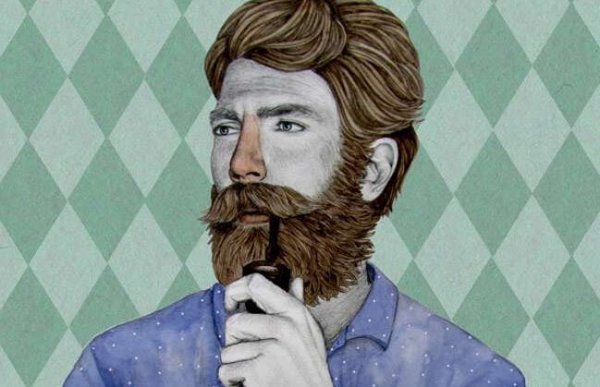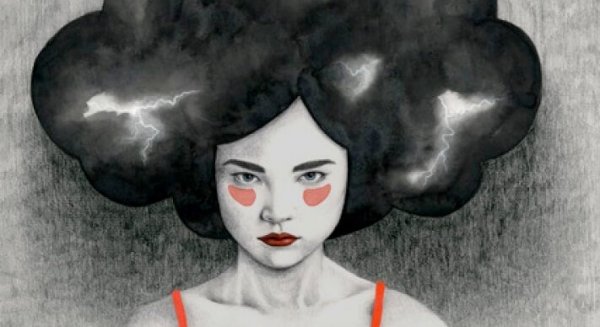Sometimes Being Strong Isn't a Choice, It's Your Only Option


Written and verified by the psychologist Valeria Sabater
Sometimes, life is just hard. It is then when being strong is your only choice. You take up your armor and your sword, act intelligently, and draw upon the energy you have stored in your heart. However, sooner or later, you may wear down.
When we’re reading a classic, we know almost instantly when fate begins to take over. When we read Virgil, Shakespeare or Dickens, we wait for that moment. As seasoned readers, we know how to anticipate when treason, traps, mistakes or tragedy will be unleashed.
But in our more ordinary, raw lives, we rarely anticipate that the natural course of life will ever take revenge on us. When we move in a straight line towards our dreams, few of us expect destiny to have another plan: to open a trapdoor under our feet and whisper, “now you need to wait, your dreams are on hold”.
No one ever explained to us what that thing called adversity is. In fact, it just shows up itself, as a teacher. For many of us, we were promised that he who tries hard gets rewarded; that if you love others, they will not abandon you; that if you trust, good things come.
However, life often has a poorly calibrated compass, one that fails to point North. Instead, it points us down the longest and hardest road … where being strong is the only option.

Being strong may put you at higher risk of getting depressed
Self-help books and personal growth articles are obsessed with teaching us what the 10 or 12 or 100 characteristics of “strong” people are. There is the mistaken idea that weakness or vulnerability inevitably leads to mental illness. Following this line of thinking, being “mentally strong” will help us weather — or avoid altogether — anxiety disorders and depression.
It’s not that simple, though. People accustomed to being strong are actually at greatest risk of developing depression. For example, think about caregivers who care for their dependent relatives.
Think of a parent whose spouse is unemployed and must bear the weight of the family’s obligations. Think of people whose profession means devoting their lives to helping the marginalized, abused women, orphaned children.
Being strong for the sake of other people can get hard. We want to be the best version of ourselves and give them the security, intimacy, hope and optimism they need. However, we don’t realize that we’re just “acting” a lot of the time. We believe it though: it’s self-deceit.
We deny our most genuine feelings inside us: fear, uncertainty, anxiety, loneliness… Until sooner or later we “break.” And we don’t ask for help; we shut up. Or worse, we keep obsessively putting other people first.

If being strong is your only option, accept your vulnerability
We all know it. The story of our lives includes challenges that we never asked for, tragedies and things that test our values. However, while we may see ourselves as the heroes because we can do it all and keep in our complaints and tears, there is one error we constantly make: neglecting ourselves.
If being strong is your only option, accept your vulnerability, because vulnerability does not mean weakness. Rather, it is an awareness that sometimes we need to stop and just breathe. Being strong doesn’t mean ignoring your anger or forgiving so much that you lose your dignity. Being strong also doesn’t mean imposing your own perspective on others and trying to control everything.
In reality, what makes us weak is hiding ourselves from the world. If we worry about keeping up our pretty exterior in order to keep up the appearance of being strong, we’ll widen the gap between what we are and what we show.

Therefore, one secret of resilience is being genuine, all the time. Because you may be strong, but at the same time you need to ask for help when you need it. Because joining forces with people is smart.
Sometimes, life is just hard. It is then when being strong is your only choice. You take up your armor and your sword, act intelligently, and draw upon the energy you have stored in your heart. However, sooner or later, you may wear down.
When we’re reading a classic, we know almost instantly when fate begins to take over. When we read Virgil, Shakespeare or Dickens, we wait for that moment. As seasoned readers, we know how to anticipate when treason, traps, mistakes or tragedy will be unleashed.
But in our more ordinary, raw lives, we rarely anticipate that the natural course of life will ever take revenge on us. When we move in a straight line towards our dreams, few of us expect destiny to have another plan: to open a trapdoor under our feet and whisper, “now you need to wait, your dreams are on hold”.
No one ever explained to us what that thing called adversity is. In fact, it just shows up itself, as a teacher. For many of us, we were promised that he who tries hard gets rewarded; that if you love others, they will not abandon you; that if you trust, good things come.
However, life often has a poorly calibrated compass, one that fails to point North. Instead, it points us down the longest and hardest road … where being strong is the only option.

Being strong may put you at higher risk of getting depressed
Self-help books and personal growth articles are obsessed with teaching us what the 10 or 12 or 100 characteristics of “strong” people are. There is the mistaken idea that weakness or vulnerability inevitably leads to mental illness. Following this line of thinking, being “mentally strong” will help us weather — or avoid altogether — anxiety disorders and depression.
It’s not that simple, though. People accustomed to being strong are actually at greatest risk of developing depression. For example, think about caregivers who care for their dependent relatives.
Think of a parent whose spouse is unemployed and must bear the weight of the family’s obligations. Think of people whose profession means devoting their lives to helping the marginalized, abused women, orphaned children.
Being strong for the sake of other people can get hard. We want to be the best version of ourselves and give them the security, intimacy, hope and optimism they need. However, we don’t realize that we’re just “acting” a lot of the time. We believe it though: it’s self-deceit.
We deny our most genuine feelings inside us: fear, uncertainty, anxiety, loneliness… Until sooner or later we “break.” And we don’t ask for help; we shut up. Or worse, we keep obsessively putting other people first.

If being strong is your only option, accept your vulnerability
We all know it. The story of our lives includes challenges that we never asked for, tragedies and things that test our values. However, while we may see ourselves as the heroes because we can do it all and keep in our complaints and tears, there is one error we constantly make: neglecting ourselves.
If being strong is your only option, accept your vulnerability, because vulnerability does not mean weakness. Rather, it is an awareness that sometimes we need to stop and just breathe. Being strong doesn’t mean ignoring your anger or forgiving so much that you lose your dignity. Being strong also doesn’t mean imposing your own perspective on others and trying to control everything.
In reality, what makes us weak is hiding ourselves from the world. If we worry about keeping up our pretty exterior in order to keep up the appearance of being strong, we’ll widen the gap between what we are and what we show.

Therefore, one secret of resilience is being genuine, all the time. Because you may be strong, but at the same time you need to ask for help when you need it. Because joining forces with people is smart.
This text is provided for informational purposes only and does not replace consultation with a professional. If in doubt, consult your specialist.







